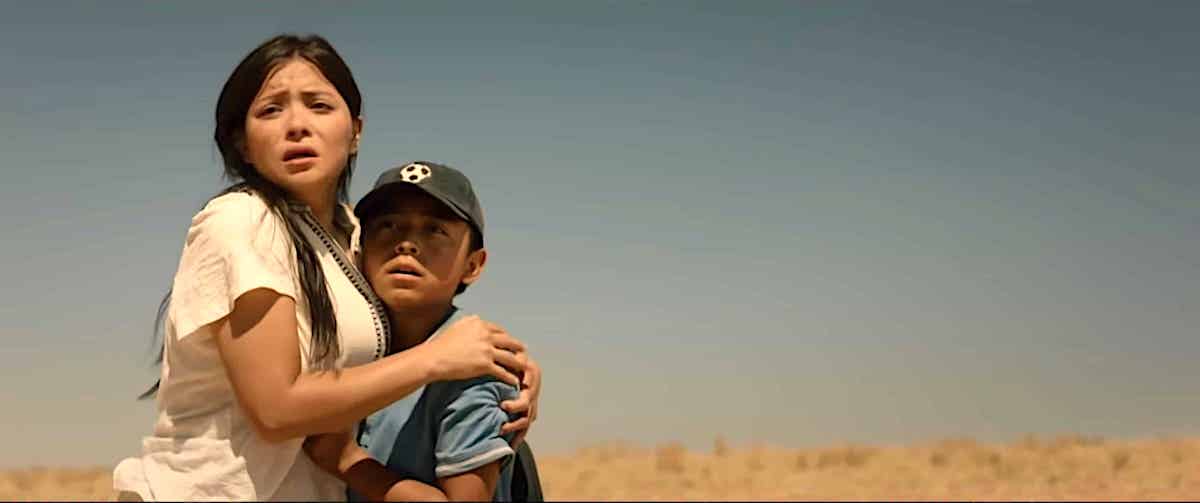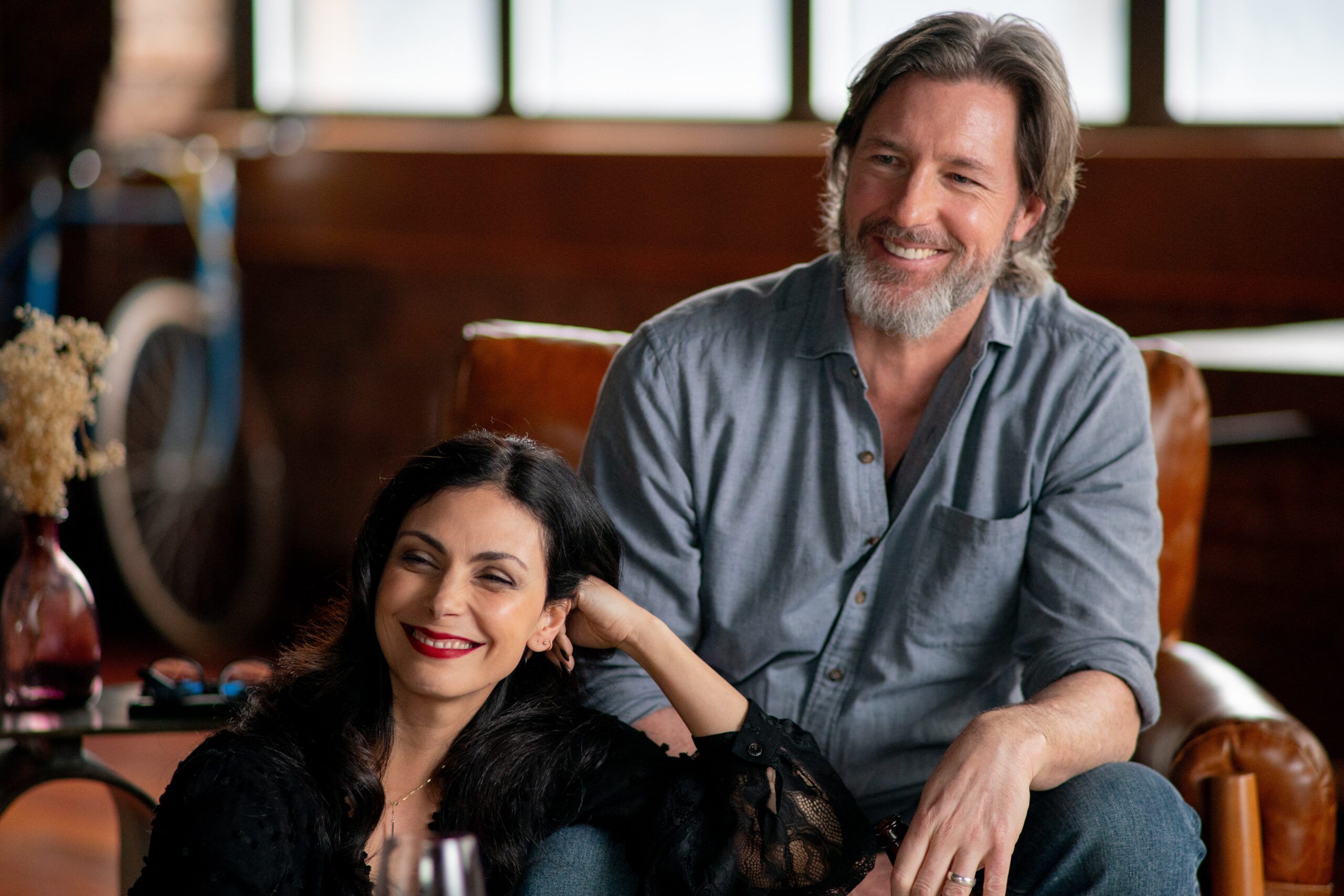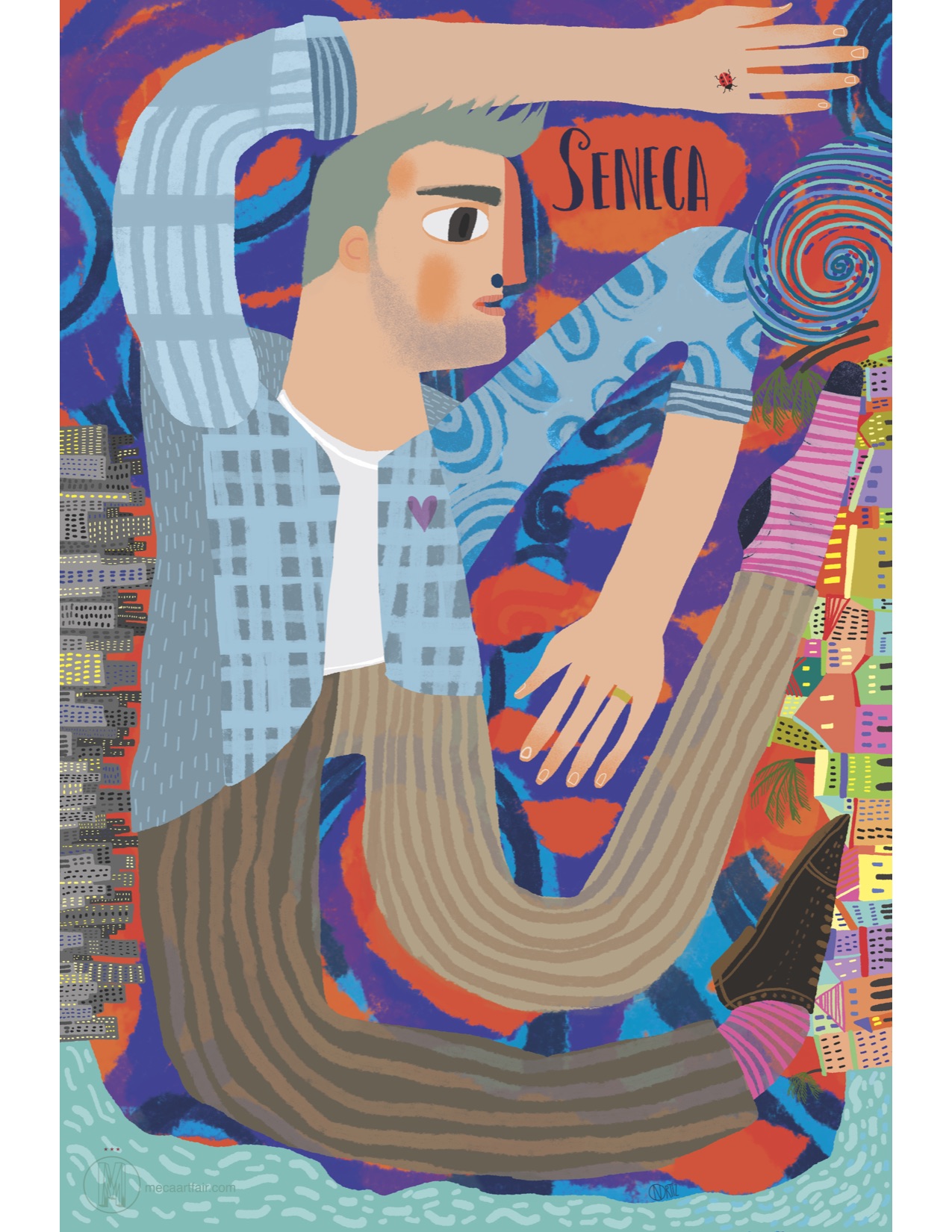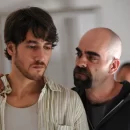06.1.2021 | By Jack Rico |
Actor Juan Pablo Raba currently co-stars in Liam Neeson’s border thriller ‘The Marksman’ out on streaming right now. He plays Mauricio, a Mexican cartel soldier out to retrieve his missing prize. Raba discusses how border stories are not going anywhere. People will keep coming up with these stories as they feel so relevant and are here to stay. We also debate The Marksman’s “white savior” narrative and why he believes the movie is really a “brown savior” film.
Below you will find the complete podcast episode, along with a transcript of the interview (spoken in Spanish and English), and edited for brevity.
Juan Pablo Raba On The Value Of Border Stories And Brown Savior Narratives
Jack Rico (JR): How did you find your character Mauricio in ‘The Marksman’?
Juan Pablo Raba (JPR): I think he’s a soldier on a mission. But he is a soldier that had no choice, but to be a soldier. Some people are born without opportunities, as much as we want to consider that everybody does have a choice. The truth is that when you start researching about people, especially south of the border, some people don’t have a choice. So what I wanted to create was a very strong character that was, scary enough to be a counterpart to such an amazing actor, like Liam Neeson. But also I needed to know that I was working on something that had a certain depth. That there was a multi-dimension to it, but that’s when, I spoke to Robert [Lorenz, director] and I told him, ‘listen, I will do the movie. If we could work on this together, we can kind of create a complete universe to him.’
And it’s not a movie about Mauricio. And I know that, but do I think that us Latinos should always be, always be portrayed that way? No, of course not. Do I know a lot about Latin America? Do I know enough to know that we’re not like that? Yes, I do. But I also know that this is a chess game right here. We’re playing against Hollywood. And that eventually we will win, but it will take time. It’s not something that we will accomplish from one day to another, from one project to another.

JR: One of the things that I did notice about your performance is that not many villains are given this type of depth. That was one of the first things that I noticed.
(JPR): Esa oportunidad de explorar un ser humano, y de interpretarlo sin juzgarlo sin importar lo malo que sea, es lo que finalmente te da la oportunidad de entender que las circunstancias son diferentes para todos y que es muy fácil decir ‘uy, esa persona es mala o yo no haría eso jamas.’ Si tu estuvieras en esa circunstancia, lo que te tienes que preguntar es, ¿de verdad no lo harías?
Lo que hice con Mauricio fue que investigue los entrenamientos que reciben las milicias de los carteles hoy en día. Y resulta que van ex-militares de todas partes del mundo a entrenarlos ó sea que son soldados. Por eso es que cuando empieza la pelicula y él le dice a Liam, “Hey, I’m a soldier too. Y Liam le dice, “You’re no soldier,” that was my main motivation to follow him all the movie. Like, “You’re going to disrespect me? No, no, you’re not. No, no. I am a soldier. I have, I have a mission and I am trained as a soldier.” So even if it’s not the theme of the movie, when you can put all those layers into the character, then it becomes something a little bit more.

JR: What is your personal perspective on the white savior storytelling of this film and the continued cliché of Hollywood propagating Latinos crossing the border? Should these movies still exist or should we upgrade and tell different stories?
(JPR): Let me tell you what my perspective is on this movie. I don’t think it is about a white savior. I think it’s really about a Brown savior, and it’s a kid. Because Liam Neeson, the white guy, he’s broken, he’s broken by the government. He’s a veteran who is broke because he had to pay all the medical bills for his dying wife. So what do you have there? You have a broken medical system, like the one we have in the United States, and then the government he once protected and served is now taking away his property. So he has nothing. And suddenly comes in this Brown kid who gives him hope and gives him a reason to fight and live.
So are we talking about a white savior film? Yeah, of course. It’s going to Neeson and he’s the lead of the movie. But is it maybe the other way around? We have to start changing the narrative, but it’s a chess game. We still have to tell stories, and border stories are very interesting.

It can be US/Mexico, Colombia/Venezuela, or Israel/Palestine, border conflicts are all over the world. And we just happen to live in the States and we just happened to make the story. The reason why we have to keep on doing this is that it doesn’t matter on what side of the spectrum you stand. Through art, through literature, through cinema, through television, we have a great opportunity and it’s to harness such a huge subject and narrow it down to one story.
So what do we have? We have a story about a kid who crosses the border because he has to, because he is followed, because he has no other choice. Some people on one side of the spectrum, say, “yeah, they come in here because they want to, they want to buy a car, they want to buy a big house, they want to follow the American dream.” Brother, once you live in the States, the American dream is long gone. Most of those people, come into the States to maybe have a little bit more of a decent life, but they leave their countries because they have nothing left, because they’re running away. So if through this movie, or any kind of movie, we can make people change a little bit, their way of seeing it… by focusing on one story, then I think it’s a huge game-changer.
‘Highly Relevant’ is a Latino pop culture podcast. Jack Rico, TV host, journalist, film critic, and podcaster, talks with actors, musicians, journalists, and media executives about how Latinx pop culture is influencing mainstream entertainment.




























